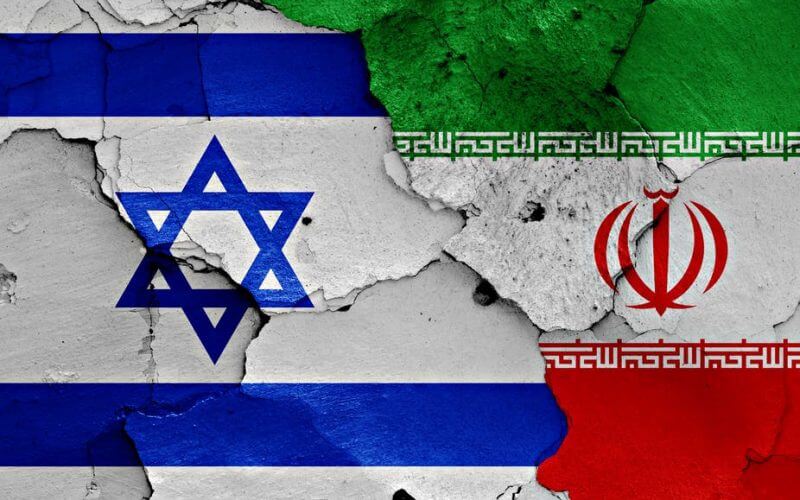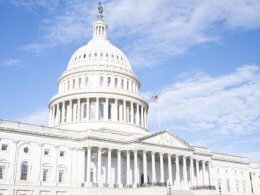For years, the repeated paradigm for Iran policy in Washington has been the same: Bomb Iran, or let Iran get the bomb. Generally speaking, Conservatives have taken a more hawkish, all-options-on-the-table approach in stopping Tehran from obtaining weapons, and Democrats have seemingly paved the way for them to do so. It’s a myopic and oversimplified view of a nuanced and evolving reality of dealing with the Iran regime. And yet, it overlooks the most powerful ally in combating the 'Iran problem': The Iranian people.
But perhaps there is a third way; One that considers the failing state of the Iranian regime and the progression of an entire generation of Iranians who seek democracy away from religion, opposing their government’s indoctrinating propaganda and open hatred for the West and Israel.
The “Cyrus Accords,” a new initiative now circulating in Washington D.C., calls for a normalization deal that would mirror the Abraham Accords in many ways and provide Iranians with hope for a future of “peace and prosperity” alongside Israel.
The idea originated from Victoria Coates, Senior Fellow at the Center for Security Policy and Len Khodorkovsky, former senior advisor to the U.S. Special Representative for Iran.
“The Iranian people deserve the same access to peace and prosperity as the Israelis and Arabs who entered into the Abraham Accords last year,” Coates said to The Foreign Desk.
The Abraham Accords, signed September 15 last year, were brokered by the U.S., establishing innovative peace and economic deals between Israel and Bahrain, Morocco, Sudan, and the United Arab Emirates.
“Every day the Iranian people see the Israeli-Arab relations flourish, they wonder why their future continues to be held hostage by a gang of Islamist extremists in Tehran. They can envision the day when the Abraham Accords can be followed by Cyrus Accords, ushering in a new era of peace and prosperity between their great nation and their Jewish neighbors,” Khodorkovsky said to The Foreign Desk.
Coates and Khodorkovsky publicly presented their idea for the first time in an opinion piece for The Jerusalem Post February 1.
Coincidently, on the same day, 38 Iranian dissidents penned a cogent letter to President Biden pleading for support in their efforts to transform their government into a secular democracy.
There have been advocates of a ‘third option’ in dealing with Iran, particularly in the past decade, but those initiatives have always revolved around a grass-roots movement driven solely by the Iranian people to outline their own destiny. The challenge in this notion has repeatedly been the lack of leadership and one unified opposition force.
The Cyrus Accords would aim to establish normalized relations between Israel and Iran, the name honoring Cyrus the Great, a past Persian leader who respected Israel and “can be viewed as the first political leader of the Zionist movement in history,” President of the Institute for Voices of Liberty Bijan Kian said to The Foreign Desk.
“The Cyrus Accords revive the ancient bond between descendants of Abraham and descendants of Cyrus The Great. Cyrus The Great freed the Jews from the tyranny of Nebuchadnezzar, issued a decree to allow them to return to their homeland and, contributed from the Persian Empire treasury to help them build their holy temple,” Kian explained.
Currently, the Iranian people are living under a government which is a far departure from the days of Cyrus The Great, but the hope is that an agreement such as the one Coates and Khodorkovsky are advocating will give peace and freedom-loving Iranians the confidence and momentum to fight for a better future and be met by the U.S. and Israel, who will be prepared to welcome Iran into peaceful relations.
In order for such a deal to occur, however, the Iranians must “have leadership that prioritizes their well-being over spreading violent mayhem across the Middle East and beyond,” said Coates.
“By working to establish the outlines of what Cyrus Accords would look like between the Israeli and Iranian peoples now, we can show Iranians a more hopeful future,” Coates continued.
Coates believes that the Biden administration can support efforts of Iranian freedom-fighters by “[making] clear the regime needs to immediately start prioritizing support for the basic quality of life priorities of the Iranian people, including food security, job security, healthcare and environmental security,” which the regime failed to do when sanctions were originally lifted in 2015.
The action that “would allow the administration, in consultation with Congress, to start lifting sanctions” would be for Iran to “stop their pursuit of a nuclear weapon and the violent and destabilizing policies that have brought misery to million across the Middle East,” said Coates.
Coates also says the administration should pursue existing, viable technology to circumvent the regime’s internet firewalls and encryption to protect Iranians who use free internet from detection and persecution, as the Iranian people often face imprisonment, torture, and even execution for opposing the regime.
Kian strongly supports Coates’ and Khodorkovsky’s Cyrus Accords proposal and believes the Israelis and Iranians will eventually “join hands to build a better future for their children and grandchildren while keeping their own best interests, and building upon the strongest historical bonds to turn challenges into boundless opportunities for peace and prosperity.”
“An independent Israel has always formed the western flank of Iran’s defenses. Let’s see the revival of this ancient bond now. The Cyrus Accords, by the people, for the people of Iran and the People of Israel,” Kian said.










